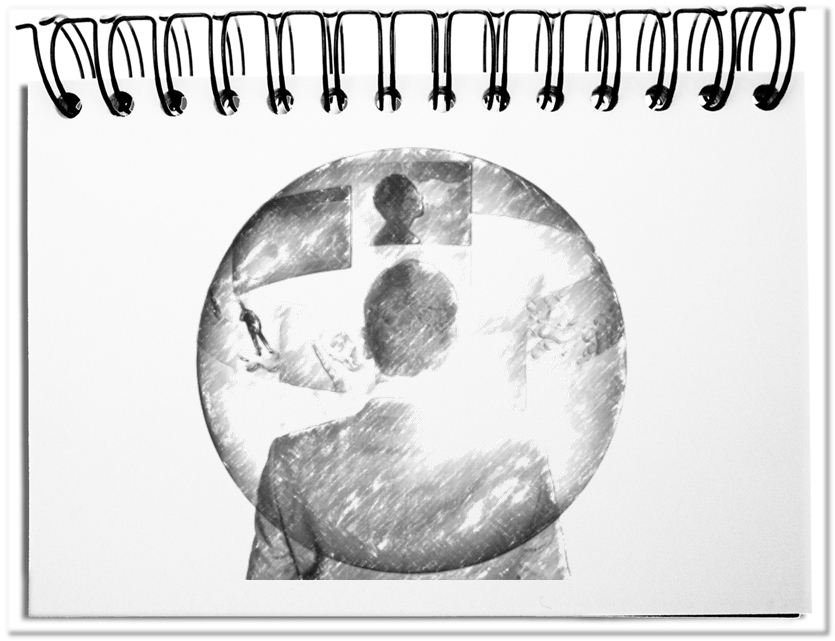If Socrates would have already known the term, one of his famous sayings would have been going like this – “I know that I know nothing outside of my informational bubble.” The fact that we cannot know what we do not know, is an uncomfortable situation. Since Gutenberg the availability of information has grown immeasurably by the mass media. Today we arrived in the Internet, where everybody can reach everybody, as long as they are found. In this complex world it is natural that the web pages are linked with like-minded ones – creationists link to creationists; supporters of the theory of evolution link to supporters of the theory of evolution. What constitutes these spheres? How can you get beyond the informational bubble?
The informational bubble is for example defined by the following aspects.
- Consistency
The cohesion in an informational bubble results from a consistent correlation. The individual components repeat and complement each other or even built on each other. In any case they never contradict themselves. For this purpose the necessary logic must be as simple and understandable as possible. - Language
The consistency is guaranteed by a common language. The contributions always repeat a similar pattern. This leads over time to a High Context culture, which is only understandable from the outside and/or is interpreted in the wrong way. Informational bubbles subsist on their technical jargon. - Dogmatism
Informational bubbles have to resist the tendency of influencing their consistency and their jargon. Different world views are as early as possible nipped by all means in the bud and are actively ignored. Repeating the contents through re-use is rewarded. Failure is defamed immediately, mostly as lack of knowledge or as lie or as fake news. - Internal linking
An important function is the use of cross references within the own informational bubble. In the interest of consistency the link to opposite or other opinions is forbidden. Thus, a closed explanation system evolves that lacks openness and a discourse with other topics. - Filter
The Internet insinuates complete accessibility. Therefore the net providers and the social platforms have the possibility to insert and in the meantime even the obligation to filter at any time. These filters prevent the visibility of certain web pages. Particularly countries and enterprises, which believe that they have to exercise control, can fade out undesired contents with simple measures and without being recognized immediately.
There is actually no way out of the bubble, except you have a look beyond your own nose. Additionally it needs:
- Neutral search engines
As long as there are overarching search engines, which can look into all informational bubbles, there is a large probability that you can look out of your own informational bubble. The problem is that one does not have any objective way of recognizing filtered contents except you get hints from other media or by word of mouth. You never know, what you don’t know. - General rules for filters
In the best interest of maximum openness, rules for an open Internet should be defined. They should regulate technical blocking, the elimination of search results, the deactivation of web pages and self-censorship. In principle there are cases, in which filters are justified – pedophilia, terrorism, or the like. Unfortunately there is still no generally accepted interpretation, which web pages are to be filtered and which not. - Mutual tolerance
The acceptance and connivance of other opinions is an approach, which is available for everybody, but for understandable reasons is not applied. The discussion of contrary positions would guarantee that the own approach gets more stable. Only with the appropriate tolerance, discourses become possible.
Bottom line: The informational bubble is a natural phenomenon. The common language, the necessity of consistent contents, the inherent convictions, consistent cross references and filters create an integrated approach. With neutral search engines, general rules for filters and common tolerance you can get beyond the informational bubble.

